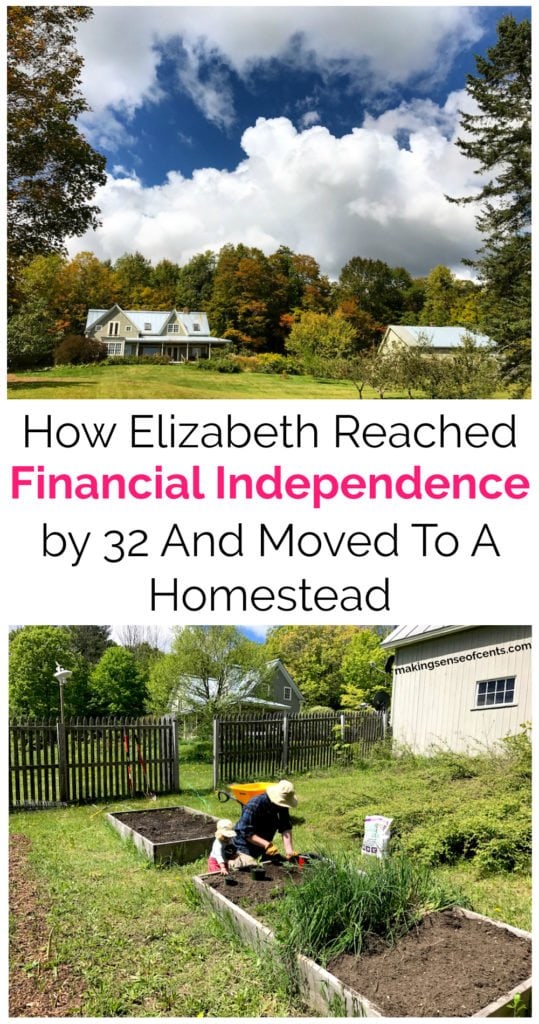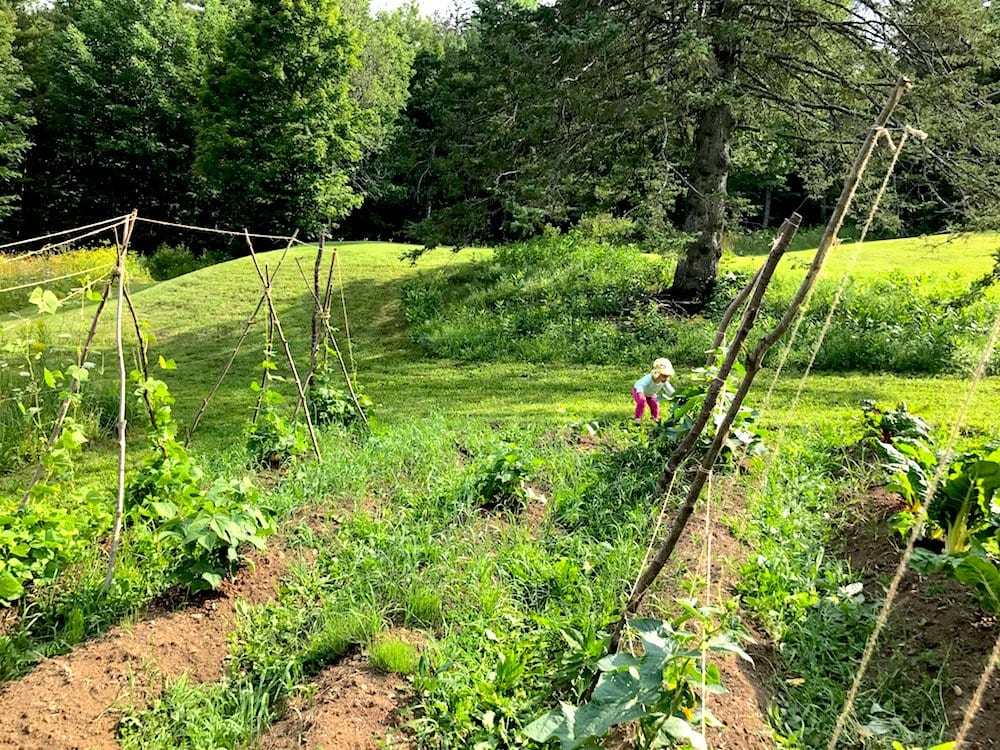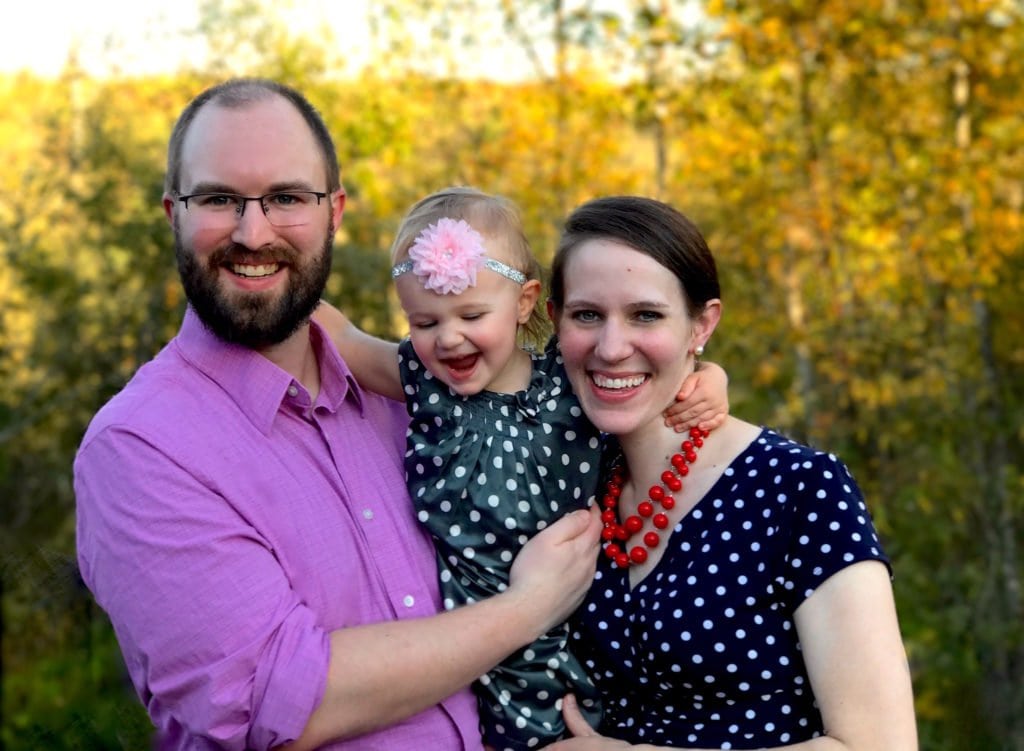
Elizabeth Willard Thames, better known as Mrs. Frugalwoods, is the creator of the award-winning personal finance blog, Frugalwoods.com. At age 32 she “reached financial independence and left a successful career in the city to create a more meaningful, purpose-driven life on a 66-acre homestead in the woods of Vermont” with her husband and young daughter.
Thames is the author of the book, Meet The Frugalwoods: Achieving Financial Independence Through Simple Living. Before becoming a writer and homesteader, she worked for 10 years in the non-profit sector as a fundraiser and communications manager.
In this interview, you’ll learn:
- How she reached financial independence.
- The differences between 9-5 and her dream life.
- The sacrifices she made to become financially independent.
- How she saved 70%+ of her income.
- How she still lives quite comfortably despite saving so much money.
- How she plans on making her retirement funds last her whole life.
And more! This interview is jam packed full of great information!
P.S. If you leave a comment below, I’m randomly choosing one lucky reader from the comments to receive a copy of her book.
I asked you, my readers, what questions I should ask her, so below are your questions (and some of mine) about Elizabeth’s story and how she has accomplished so much. Make sure you’re following me on Facebook so you have the opportunity to submit your own questions for the next interview.
Related content:
- How My Wife and I Paid Off $62,000 in Debt in 7 Months
- How We Paid Off Almost $10,000 in 10 Weeks
- How I Paid Off Over $100,000 in Debt With the Help of eBay and Garage Sales
- How I Paid Off $40,000 In Student Loans in 7 Months
- How This Couple Paid off $204,971.31 in Debt
- How Tina Immigrated To America With Nothing and Now Has a Net Worth of $2,000,000
1) Tell me your story. How did you achieve financial independence?
I’m Liz, although I’m better known as Mrs. Frugalwoods. I write Frugalwoods.com and my first book, Meet The Frugalwoods: Achieving Financial Independence Through Simple Living, will be published by HarperCollins on March 6, 2018.
In May 2016, at age 32, I reached financial independence and left a successful career in the city to create a more meaningful, purpose-driven life on a 66-acre homestead in the woods of Vermont with my husband, Nate, and our young daughter. We’re now expecting our second daughter and loving our new life out here in the country! I actually don’t refer to myself as “early retired” since I find that to be a bit of a misnomer. Rather, I’m financially independent and don’t need to work to earn a living, but choose to work as a writer because I find it personally gratifying. I define financial independence as the point at which our passive assets comfortably cover our expenses and we no longer have to earn paychecks.
In terms of when I began to save money, in truth, I’ve always been a saver. Throughout childhood, I’d save all of my birthday money and when I began babysitting and earning my own money, I saved up enough to buy my first car by myself at age 16. My husband has a similar relationship with money, and we were able to reinforce this tendency to save in each other. Before enacting our plan to reach financial independence, we were saving around 40%-50% of our take-home pay. After deciding we wanted to retire early, we ramped our savings rate up to over 70%, and sometimes 80%, of our take-home pay.
Our route to financial independence really began during our undergraduate days, which is when we met. Nate and I both attended a relatively inexpensive state school–The University of Kansas–and thanks to scholarships, working during college, and help from our parents, graduated without any debt. After graduating, we were committed to not taking on any debt in our new lives as adults, and we lived frugally from the start. Thanks to this debt-free start in life, we were able to save ever-higher increments of our salaries over the years. And we started very small! My first job out of college was with AmeriCorps in New York City, and I received a stipend of $10,000 for the year. I managed to save $2,000 of it.
From there my salary increased, as did Nate’s, and we established a goal of buying a home. With a laser-like focus on saving up a downpayment, we socked away as much as we could every month, even though we both always worked for non-profit/mission-based organizations. Although we also increased our standard of living and experienced lifestyle inflation, we were always focused on saving fairly high percentages of our take-home pay. We didn’t always know what we were going to do with this savings–and we certainly didn’t have financial independence as a goal initially–but we did know that money provides opportunity. I knew that without debt, and with a substantial savings built up, we’d be able to make unusual choices in our lives and not be beholden to our paychecks forever. I always like to say that no one has ever regretted saving more money. To the contrary, it provides you with options.
Then in March 2014, Nate and I had the startling realization that we were deeply unhappy. We were 29 at the time, living in the Boston area, and both working what we’d assumed would be our “dream jobs”: white-collar, career-track positions we’d worked hard to attain. In 2012, we’d purchased our first home, in Cambridge, MA, and adopted our retired racing greyhound, Gracie. From that point on, we’d thought we had it made and that we’d achieved our long term goals. The problem is that we were both unfulfilled. We realized that working in cubicles under artificial lights all day every week day was a depressing proposition to us both and we couldn’t imagine doing it for another 30 or 40 years.
And so, we hatched a plan to radically transform our lives. My husband asked me the simple question: “when are you happiest?” My response: “when we’re hiking in the woods together.” His answer was identical and we realized that our lives didn’t make sense as we were living them in the middle of urban Cambridge, MA. We made the decision in that moment to reach financial independence and move to a homestead in the woods of Vermont in order to start truly living each day as opposed to wishing time away, working for the weekends.
2) What are the differences between 9-5 and your dream life?
I’m now in control of my time. I’m able to decide what to do and when as opposed to being beholden to an arbitrary nine to five schedule. Additionally, neither my husband nor I have a daily commute, which frees up even more of our time. When we considered how much we were “paying” to work–both financially and with our time–we’re grateful every day that we no longer have to trade away our lives for our jobs.
Another major factor in our decision to retire early was our desire to spend as much time as possible with our daughter–who is now two–and her baby sister, who is due in February 2018. Our ability to be stay-at-home parents is transformational for our family and allows us to structure our time, and our daughter’s early learning experiences, as we wish. Plus, not having the cost of daycare represents a profound savings in our budget. I consider time and money to be our greatest resources and the two things from which all other priorities stem: family, health, fulfilling work, and more. When I didn’t control my time and my money, I felt like I wasn’t truly living my life.
3) What sacrifices did you have to make in order to reach this milestone? What did you give up to save 70% of your income?
When Nate and I decided to pursue financial independence, one of our first steps was to comb through every dollar we spent every month. We needed to know where our money was going in order to create a plan to save more of it. Without this crucial base of knowledge, there’s no way to set an actionable savings goal.
We decided to eliminate every single expense in our budget that wasn’t strictly necessary. Things like restaurant meals, coffees out, new clothes, haircuts–all of it went. In our first month of extreme frugality, we wanted to test ourselves and see just how much we could save. Then, we made conscious and deliberate decisions to add certain expenses back into our budget because we felt they delivered a high return on our investment. For example, my husband and I now go out to dinner together once a month, which is a very special treat for us.
I’ve found that the rarity of a luxury’s occurrence actually serves to increase the level of happiness I derive from it. If we repeatedly expose ourselves to treats, we become deadened to their enjoyment. For example, if we ate dinner out every single night, it would no longer be special and would become a rote chore. By keeping that particular luxury rare, we derive an incredibly high level of satisfaction from our monthly date night out. This is very much in alignment with the concept of hedonic adaptation: repeated exposure to any stimuli or luxury means we’ll have to increase the amount or frequency of the luxury/stimuli in order to derive the same level of pleasure. By resetting our hedonic adaptation meters, my husband and I are able to enjoy our lives more while spending less money.
Additionally, we discovered that frugality delivers profound benefits beyond merely saving money. Frugality:
- Is environmentally friendly
- Reduces waste (both food and otherwise)
- Builds community
- Brings you closer to your partner and family
- Helps you identify your priorities and goals
- Gives you options
- Reduces stress by yielding a simpler, more peaceful life
- Saves time!
On that last point, I often hear that people assume a frugal life takes more time, but I find exactly the opposite. Rather, I only do the things I most want to do with both my time and money. I don’t let society or other people dictate how I should use those two precious resources, which means I use a lot less of both!
A great example of how frugality saves us time and money are our in-home haircuts. I cut my husband’s hair and yes, he cuts mine! I was really nervous before my first home haircut, but was pleasantly surprised at how great it looked. I used to spend $120 per haircut and now, for zero dollars, I have a haircut that looks almost just as good. Plus, I save hours of time! In the past, I had to make an appointment, commute to the salon, get my haircut, and commute back home again. All in all, at least three hours of my time. Now, it takes just 15 minutes! The trade-off for me in a no-brainer.
Additionally, my husband and I have developed our DIY prowess in many different areas: everything from plumbing to cooking to haircuts to working on our homestead. In teaching ourselves how to do all of these tasks on our own, we reduce our dependence on paying people to do things for us, learn new skills, and derive a higher level of satisfaction than if we hired people to do them for us. Researchers have documented this as the “Ikea Effect” whereby people are happier with projects they DIY than with projects they pay others to complete.
Another important thing to remember is that when you eliminate an expense–such as haircuts–you’re not just saving that money for one month or one year. You’re saving that money every year for the rest of your life. And, if you invest the money you save, which is what I recommend doing, you’re then benefiting from compounding returns on that money.
Here’s one of my very favorite examples of how eliminating one expense can net you a tremendous amount of money in the long run:
Let’s say you spend $75 every month on cable. Not a huge amount of money on its own. But, multiplied by 12, that’s a whopping $900 per year on television. Let’s say you instead invested that $900 in low-fee index funds, and enjoyed a 7% return (which is considered an average annual market return over the long-term). Imagine you kept that same $900 invested for decades (which is the wisest way to invest) and added $900 to your investments every year instead of paying for cable.
In 30 years, your measly $900 would’ve grown to $91,865.74. This is the compounding power of frugality and investing. If you’d like to try this out with your own numbers, here’s the compounding interest calculator I use.
4) Would you say that you live comfortably?
Absolutely! We consider our lifestyle to be luxuriously frugal. We live where we want, as we want, and we use our time as we want. I can’t imagine anything more luxurious than that. My husband and I are fortunate to live in a spacious, comfortable home with our children on 66 acres of gorgeous woods, fruit trees, gardens, ponds, creeks, and more. Deprivation isn’t part of our equation at all, and we have everything we need. I’ve found that through living a simple, frugal life, I no longer lust after material goods. I’m not interested in buying new clothes or shoes or purses because I know that those things won’t bring me lasting happiness. I’m much more interested in quality experiences and a life that I love living every single day.
I find that the less I buy, the less I perceive I need. The inverse, I think, is also true, such that the more we buy, the more we perceive we need. That’s the insidious nature of our consumer culture and the tempting path of treating ourselves everyday with purchases that don’t actually get at long term happiness, but that serve to derail our long term goals. By focusing my spending only on my highest and best priorities, I’ve been able to craft a life that includes everything I need with very little money spent. Frugality mutes the noise of unnecessary consumption and instead focuses us on our true priorities.
5) What career did you have before you retired? Did that career help you to retire earlier?
Prior to achieving financial independence, I worked for ten years as a fundraiser and communications manager for nonprofit organizations. My husband and I both always worked for non-profit/mission-based organizations. Hence, we never made investment banker salaries, but we both did very well. I’m extremely cognizant of the immense role of privilege in my life and in my ability to achieve financial independence at a young age. My husband and I were both tremendously fortunate to be born to families that encouraged us, taught us, and never struggled in a significant way financially. Neither of us comes from wealth–and we certainly didn’t inherit any money–but we both come from stable, middle-class families.
I don’t think that my success is entirely due to my own good decisions; rather, I see the role of luck and privilege in everything I’ve achieved. I think it’s important for me to acknowledge the many benefits I’ve enjoyed in my life–from being raised by well-educated parents, to attending quality public schools, to going to college, to securing good jobs. It’s a privilege to even consider financial independence and the question of “when are you happiest.” I use this recognition to guide my life and rather than view frugality as a mechanism of deprivation, I see it as the opening to a life filled with abundance and infused with gratitude.
6) What do you have to say to those who may think that they can never earn as much as you can – can they still retire early too?
There are essentially only three factors to achieving financial independence:
- Income
- Expenses
- Time
The more distance you can put between your income and your expenses, the faster you’ll reach financial independence. Since my husband and I set an aggressive, fast-paced goal of getting to financial independence in under three years, we needed to save at a very high rate. However, if you’re comfortable with a longer time frame, you can save less and earn less. It’s all a question of how these three factors relate. It’s also true that the less you spend, the less you need to save, the less money you need to live on, and the less money you need overall. Conversely, the more you spend, the more you’ll need to save.
I’m an advocate for coming at a goal of financial independence from both the income and the expense angles. If you earn a very high salary, for example, but don’t save much, you’re no closer to financial independence than someone with a lower salary and low savings rate. So, if you can work to increase income–either by changing jobs or taking on side-hustles–and also reduce your expenses, you’ll be able to get at your goal more quickly.
Additionally, it’s important to then invest the money you’ve saved. It’s only through solid investments that you’ll grow your wealth. It’s not enough to just stash your cash in a savings or checking account. I’m an advocate for DIY investing in low-fee index funds and I recommend the brokerages of either Vanguard or Fidelity as they both offer low-fee index funds that you can invest in on your own. My husband and I also own a revenue-generating rental property in Cambridge, MA.
7) What do you do now that you’re retired?
Since we live on a 66-acre homestead, my husband and I each split our days between outdoor labor on our land and inside work on projects that we find fulfilling. Living on such a large parcel of land means we’re never short on outdoor work that needs to be done. There’s planting, tending, harvesting, and preserving vegetables from our garden; pruning our apple and plum trees; making cider from those apples; cultivating garden plots for future planting usage; picking blackberries; maintaining our woods according to our sustainable forestry plan; felling trees for firewood; splitting and stacking firewood; clearing snow in the wintertime… and the list goes on! We don’t view the maintenance of our land as “work,” but rather as the joyful pursuit of the life we want to live. We love being outside in nature, and it’s a wonderful blessing to have the ability to walk out our front door and hike on any number of trails that we’ve built through our acres and acres of woods.
We’re also stay-at-home parents, so a good deal of our time goes into caring for our two-year-old daughter. Having the ability to structure our days around her schedule makes our lives easier and allows us to spend lots of time doing things together as a family.
In addition to this work on our property, both my husband and I choose to work on other projects that we find fulfilling. I always wanted to be a writer, and it was only through the liberation of frugality that I was able to finally pursue this goal.
8) Do you still earn an income? Does your husband work?
I do! As I mentioned above, I choose to work as a writer because I’m deeply passionate about spreading the message of frugality’s transformative power and advancing financial literacy. My husband, for his part, chooses to work from home as a software engineer as he enjoys the intellectual stimulation that stems from this work.
The crucial difference for us is that we don’t need to work for money; rather, we choose to work. When you’re not required to work in order to earn a paycheck, you can focus your efforts on projects that are meaningful to you and that are in alignment with your values and goals. Having the freedom to only take on projects that I believe in, to fiercely guard my time, and to focus on writing that I think makes a difference is liberating. I love what I do!
9) Can you explain how you will make your retirement funds last your whole life, even though you are only in your 30s?
We plan to keep our expenses in line with a sustainable long term withdrawal from our assets, which will ensure we’ll never run out of money. We have a broadly diversified portfolio of assets that we are comfortable drawing from over the long term based on historical modeling.
We have a healthy net income from our rental property, which coupled with a 3.5% or less withdrawal rate from our other assets, would cover our expenses and then some in perpetuity.
10) Lastly, what is your very best tip that you have for someone who wants to reach the same success as you?
I run a free month-long challenge on Frugalwoods, called the Uber Frugal Month Challenge, which is designed to help people follow the path that my husband and I took to achieve financial independence. If you’re interested in pursuing a life of joyful (and luxurious) extreme frugality, then I highly recommend you take the Challenge! In brief, the first steps that I recommend–and that the Challenge will guide you through–are as follows:
- Identify your long term goals. Where do you want to be in 10 years? In 20? In 40? What do you hope to do with your life? This is the very first step in identifying what changes you need to make to your finances. Without knowing what you hope to accomplish, any savings or budgeting strategy quickly becomes a pointless slog.
- Track your spending. You must know where your money is going every single month in order to set actionable financial goals.
- Determine how you want to tackle the three elements of the financial independence formula: income, expenses, and time.
Are you interested in reaching financial independence or early retirement? Why or why not?





Leave a Reply